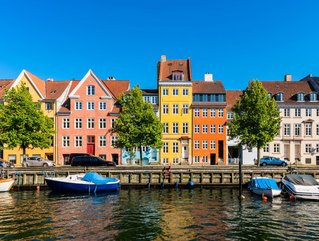Denmark continues sustainability journey with ban on petrol and diesel cars

Denmark has proposed to curb petrol and diesel cars as part of its efforts to combat climate change, it has been announced.
The nation intends to ban the sale of new petrol and diesel cars by 2030, with hybrid vehicles set to be banned by 2035.
It is hoped that this will promote the sale of electric vehicles and therefore reduce air pollution, with Prime Minister Lars Rasmussen telling parliament: “It is a big ambition that will be hard to achieve. But that’s exactly why we need to try.”
See also:
Denmark makes world record with 43% of energy supplied by wind
Hamburg’s 2018 Global Wind Summit to discuss energy storage and flexible innovations
Read the latest issue of Energy Digital magazine
The announcement follows commitments of other European countries, such as Britain and France, who will ban new petrol and diesel cars by 2040, and China which has also opted to ban the traditional fuel vehicles but hasn’t yet set a firm date.
Overall, Denmark’s goal is to be fossil fuel free by 2050. It is fast becoming a European leader in energy efficiency as it continues to erect more and more wind farms – indeed, it is home to Vestas, the world’s largest wind turbine company. In addition, 10% of the nation’s industrial employees are in green jobs, and Denmark has the largest amount of green investments globally.
As reported in Business Chief, Copenhagen is set to become the world’s first carbon-neutral capital by 2024 – it has even developed a ‘living lab’ for cleantech and smart city technologies to meet this goal.
- Hydrogen fuel cell cars: All you need to know - Changing Lanes #017. The BMW Podcast.Utilities
- Electric vehicles part of San Antonio plan to get city carbon neutral by 2050Utilities
- Hyundai IONIQ – The Future Of Electric VehiclesSustainability
- AECOM introduces EV smart charging management systemSmart Energy






